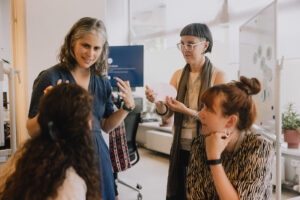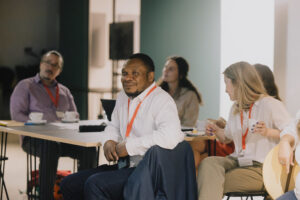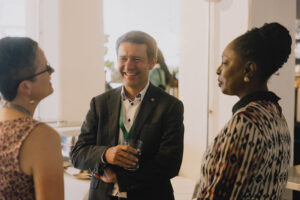Discover and learn from the Solidarity Playbook on cybersecurity
Strengthening cybersecurity
With increased digitalisation (international) civil society organisations – (I)CSOs – have faced an increase in digital threats and cyberattacks carried out by malicious actors interested in financial gains...
Learn MoreAnticipate, listen patiently, and build a peer network – three lessons from Leading Together
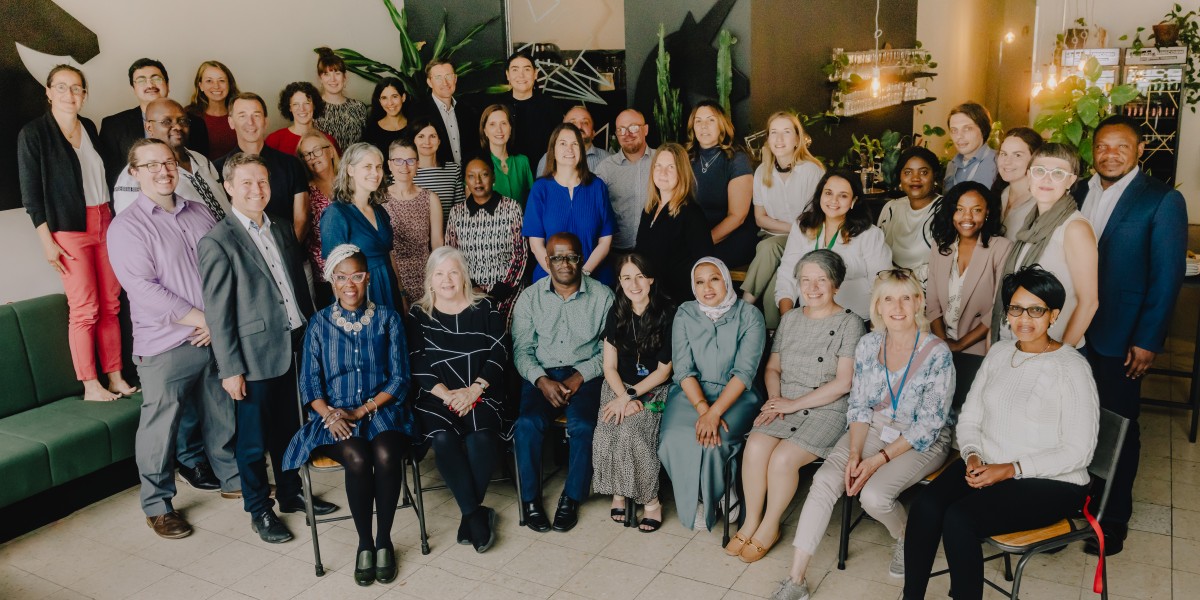
For the first time in four years, the Centre convened its Leading Together conference in person again. Leading Together is our annual space for the global directors of the ICSO divisions of Human Resources, Policy/Advocacy, and Programmes. These groups have parallel peer group discussions as well as joint sessions over topics that concern them all. This year, the Scanning the Horizon community of futures-focused senior sector professionals also joined the group. We were thrilled to welcome participants on our home turf in Berlin and spend 48h learning, debating, and reflecting. The Centre team is busily following up on those 47+ items/ideas/insights generated during the event, and we would also like to share three insights that were key to us:
1. Exercising that anticipatory muscle is challenging, liberating – and necessary
At Global Perspectives 2022, we heard and stressed how anticipatory capacity in (I)CSOs is a collective muscle we need to exercise constantly. We took this advice and focused peer and joint sessions on this topic: Discussions with Russell Reynolds on the role of leadership and using AI for the good of ICSOs as well as shaping the future through participatory strategy making were sessions where participants engaged with trends and how to “organise futures”. The Policy/Advocacy Directors discussed with David Griffiths, Associate Fellow at Chatham House the future of the Human Rights diplomacy.
We also really challenged participants with some freshly generated scenarios created in a collective exercise (ParEvo) the Centre has just concluded. Participants had to discuss and reflect on how civil society (organisations) might deal with and shape civil society space after a series of mega-tsunamis hit the world and severed all IT infrastructure. While some scenarios stretched the goodwill of participants to further consider, the exercise was highlighted by many as important to encourage imagining futures differently. A series of mega-tsunamis will throw the world into disarray (not unlike a global pandemic) and might need primarily our crisis-response capacity. However, spending time on creating long-term visions for different futures can put us as civil society sector professionals in a different kind of driving seat versus racing to manage with futures narratives others – usually more powerful actors – are creating.
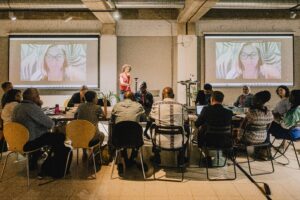
2. Taking time for nuance and learning advances us collectively
What was particularly enriching at this year’s conference was the participants’ willingness to engage in the substance of discussions and openness to critical challenges, and generally a learning mentality. We tried not to gloss over differences with buzzword definitions like “power shift” or “decolonising” but acknowledged the complexity of the matters we deal with and that we may get some things right and others wrong along the journey. Similarly, a joint discussion between the Programme and the Policy/Advocacy directors in exchange with AWID over anti-rights groups and the threat they pose to civic space was exemplary for constructive engagement: Participants brought so much nuance to the discussion and – it might sound like a cliché – embraced the diversity of viewpoints and created patience for understanding our individual or organisational contexts. These high-quality discussions were incredibly enriching and displayed a high degree of collective responsibility for advancing as a sector.
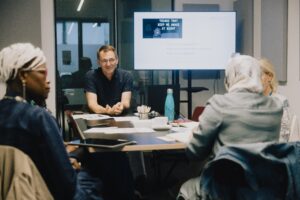
3. Our organisations are shifting fundamentally – from strategy making to recruitment processes – and peer support may just help keep the head above water
A few years back someone said “’powershift’ is the water we all swim in”. This was certainly true for Leading Together. In so many sessions participants explored topics that come from our journeys to become organisations that are at least more power-aware or even mirror a decolonised, equitable and just society that we want to see. It was hugely encouraging to see the spread of organisational initiatives and the degree to which ambitions for change are permeating the organisations: to learn from the experience of WaterAid’s participatory strategy making journey, engage with Superrr Lab in what it takes to break western-centred views of futures making. In similar vein, Mission Talent and the cohort of Human Resources directors discussed the challenges and possibilities our changing sector holds to build more diverse organisations; the Programme Directors explored with Comic Relief what ways there are to work differently with bilateral donors to enable more equitable partnerships; and the Policy/Advocacy Directors are already experienced how shifting mandates of ICSOs hold increased expectations for their departments. Senior leaders from the ICSOs are demonstrating resolve and yet acknowledge that these are unchartered waters where peer exchange, inspiration and support is just what you need.
If you are also an ICSO senior leader and you want to learn more about our offer, do reach out. We already look forward to the next round of Leading Together in 2024 – online – and in-person in 2025!
Futures, leadership, Leading Together, ParEvo, Scanning the Horizon
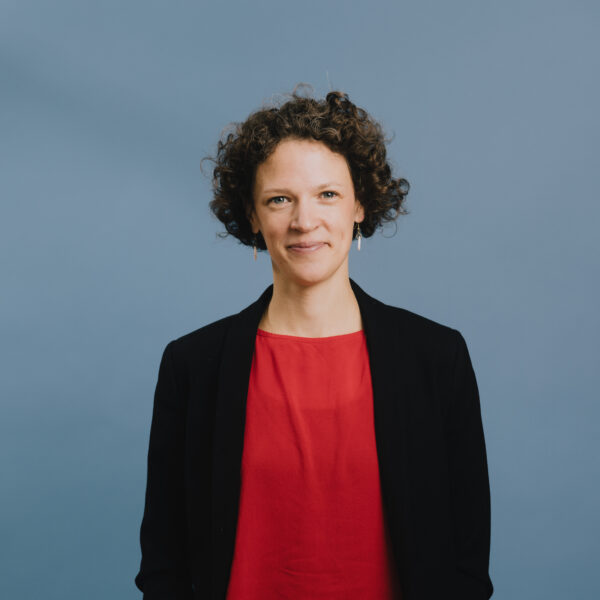
Miriam Niehaus
Head of Programmes
International Civil Society Centre
Miriam leads the Centre’s programmes. She started at the Centre as Executive Assistant in 2014 and then, as Project Manager, developed and implemented the Centre’s projects on civic space between 2016 and 2019. Prior to joining the Centre Miriam worked for VSO International and GIZ in the Palestinian Territories. She holds a BA in Islamic Studies and Social Anthropology from the University of Freiburg and an MA in Near and Middle Eastern Studies from the School of Oriental and African Studies.
Discover and learn from the Solidarity Playbook on cybersecurity

Strengthening cybersecurity
With increased digitalisation (international) civil society organisations – (I)CSOs – have faced an increase in digital threats and cyberattacks carried out by malicious actors interested in financial gains and access to sensitive data or identifiable personal information.
In recognition of this growing challenge, we captured case studies on how (I)CSOs responded to cyberattacks and collected lessons on how to better protect organisations online.
Solidarity Playbook case studies on cybersecurity
The latest edition of the Solidarity Playbook features four case studies of how (I)CSOs dealt with actual cyberattacks. We partnered with the CyberPeace Institute to showcase these case studies and provide insights into how (I)CSOs can prevent and mitigate similar incidents.
Regaining access to a social media account

Resisting six weeks of sustained phishing attacks

Deflecting a sophisticated brute-force and phishing attack
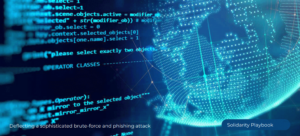
Retrieving access to a hacked IT server
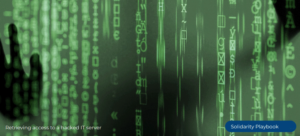
Cybersecurity needs to be a shared responsibility – it requires attention across the whole organisation and cannot be borne only on the shoulders of IT staff.
Facing cybersecurity challenges: Lessons learned and opportunity areas

Visit the Solidarity Action Network Webpage to find out more about the aims of the Solidarity Playbook and all the case study content.
For more information or feedback, reach out to Eva Gondor, Senior Project Manager
#CyberAttack, cybersecurity, SANE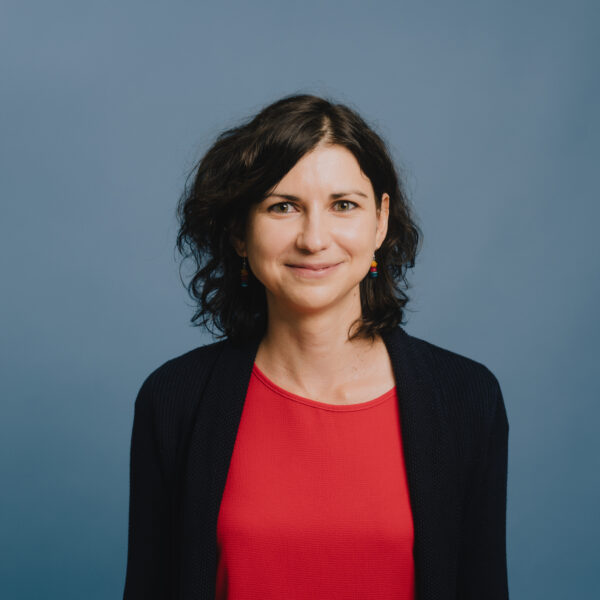
Eva Gondor
Senior Project Manager
International Civil Society Centre
Eva leads on the Centre's civic space work - the Solidarity Action Network (SANE) aimed at strengthening resilience of and solidarity among civil society actors, and the International Civic Forum (ICF), our annual civic space platform to network and identify opportunities for collaboration. Prior to joining the Centre she worked at the Robert Bosch Stiftung (Foundation) in Stuttgart where she managed the foundation’s projects focusing on civil society and governance in Turkey, the Western Balkans, and North Africa.
Official reference to our work in the UN Secretary General’s recent SDG progress report

The United Nations (UN) Secretary-General’s report, “Work on the review of progress towards the Sustainable Development Goals (SDG)” recognises the usefulness of citizen-generated data (CGD) and the UN’s interest in exploring new avenues to make better use of such data in SDG processes and beyond. The report also underlines the key role of civil society actors and community-based organisations in advancing CGD to make SDG processes and public policies more inclusive and equitable. The close collaboration between the United Nations Statistics Division (UNSD) and the International Civil Society Centre (in its role as the global LNOB secretariat) has been explicitly mentioned in the report, emphasising our mutual role in fostering collaboration between civil society and national statistics offices at the national level.
The report recognises CGD, such as community-driven data and citizen science, as useful data sources, both for filling gaps to inform policy and decision-making and as complementary information by citizens, civil society and community-based organisations in order to better reflect the realities of less visible and marginalised groups more broadly.
The report also highlights that national statistical offices are increasingly exploring mechanisms and tools to engage and connect with citizens and communities throughout the data value chain to make data more relevant and better utilised.
The Secretary General’s report refers to the expert group meeting on the topic “Harnessing data by citizens for public policy and Sustainable Development Goal monitoring: a conceptual framework”, which was held in Bangkok on 10th and 11th November 2022 to discuss concrete ways to involve civil society in all steps of the SDG process. At the meeting, it was concluded that there would be a new UN-anchored collaborative co-led by UNSD and a network of partners, bringing together diverse stakeholders, including national statistical offices, CSOs, academia and regional and international organisations. The goal is to share knowledge and experiences in leveraging citizens’ contribution to data and to inform further normative work required in this area.
For additional information, download the full report.
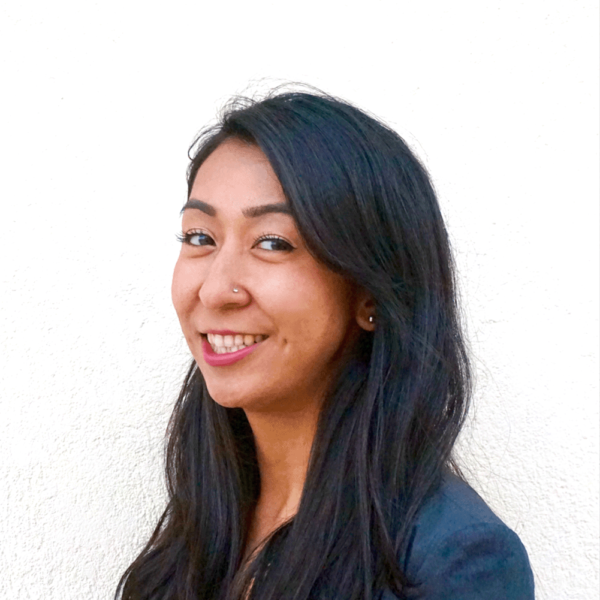
Chandani Lopez Peralta
Project Manager
International Civil Society Centre
Chandani joined the Centre as a Project Manager in May 2022. She supports the Leave No One Behind Partnership that promotes the collection and use of community-driven data to give voice and agency to marginalised communities. Prior to joining the Centre, Chandani headed communications and outreach at TolaData. In addition, Chandani has coordinated many projects for local and international NGOs, working closely with refugees, individuals with disabilities and other marginalised groups in Nepal, Germany and the US. Chandani holds a master’s degree in International Development and Social Change from Clark University, USA and a B.Sc. in Mass Communications with an emphasis on PR and Advertising from Minnesota State University Moorhead
